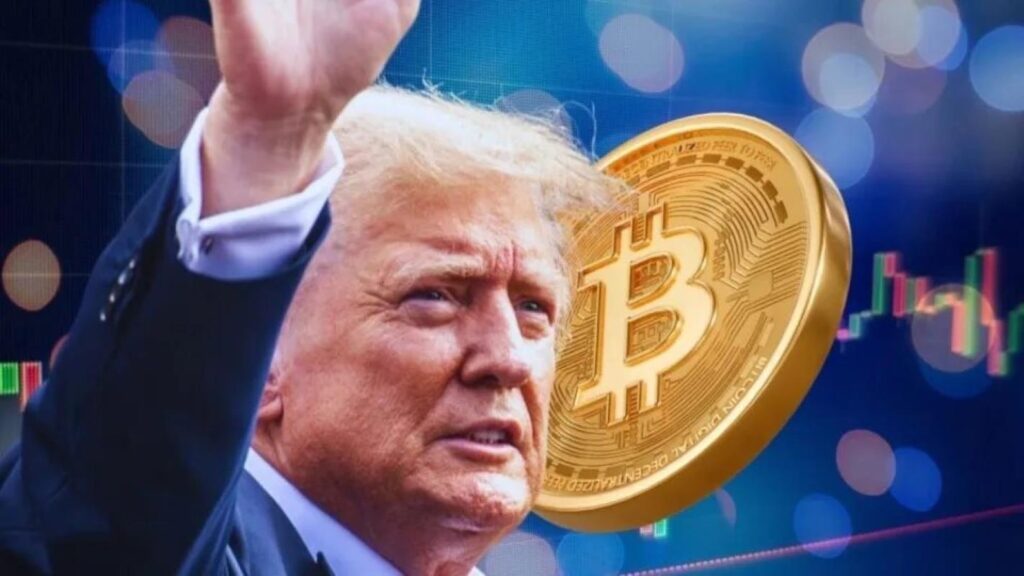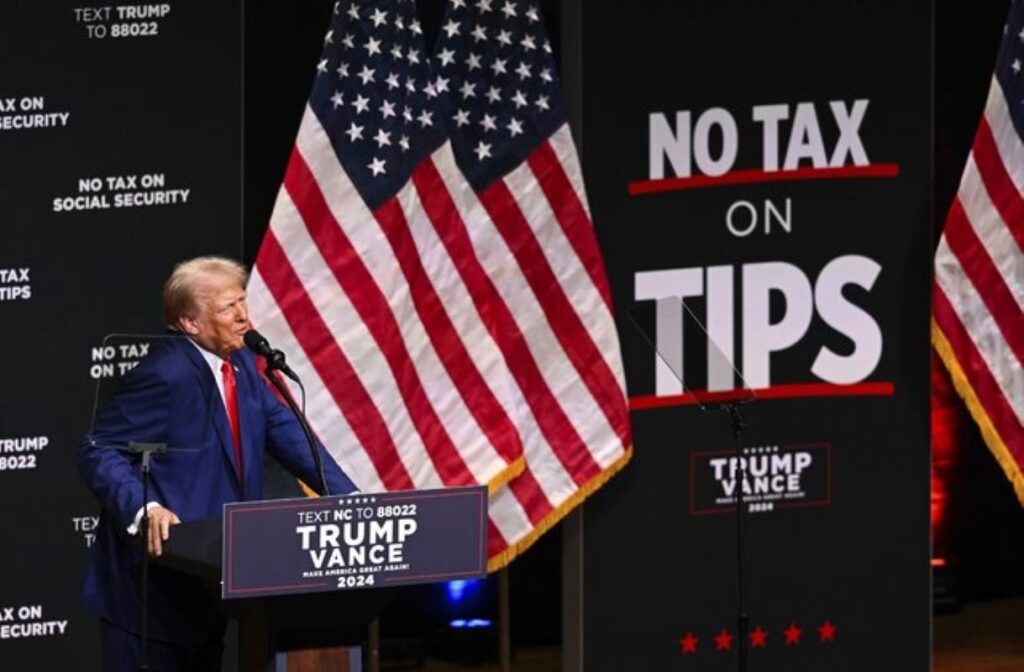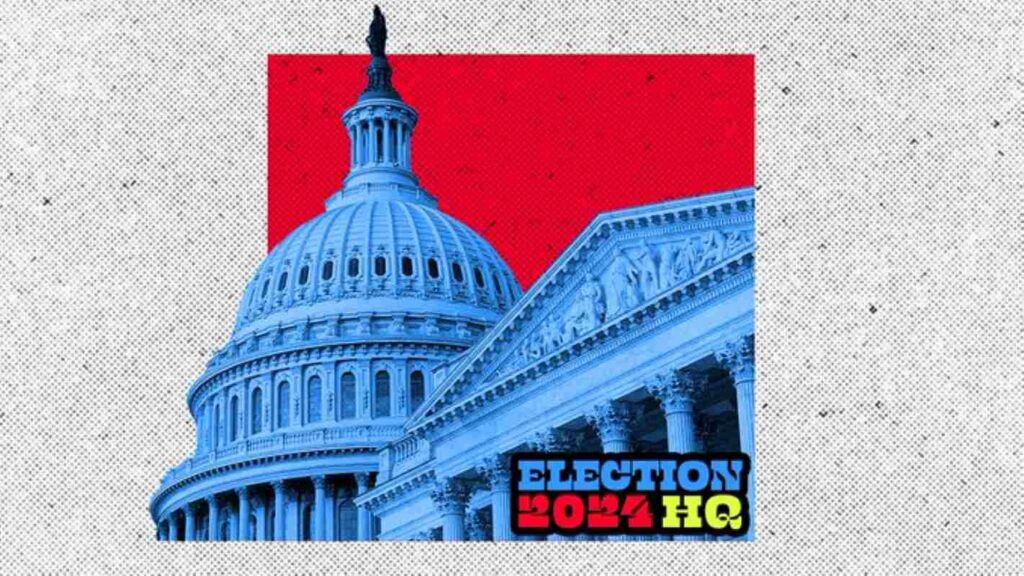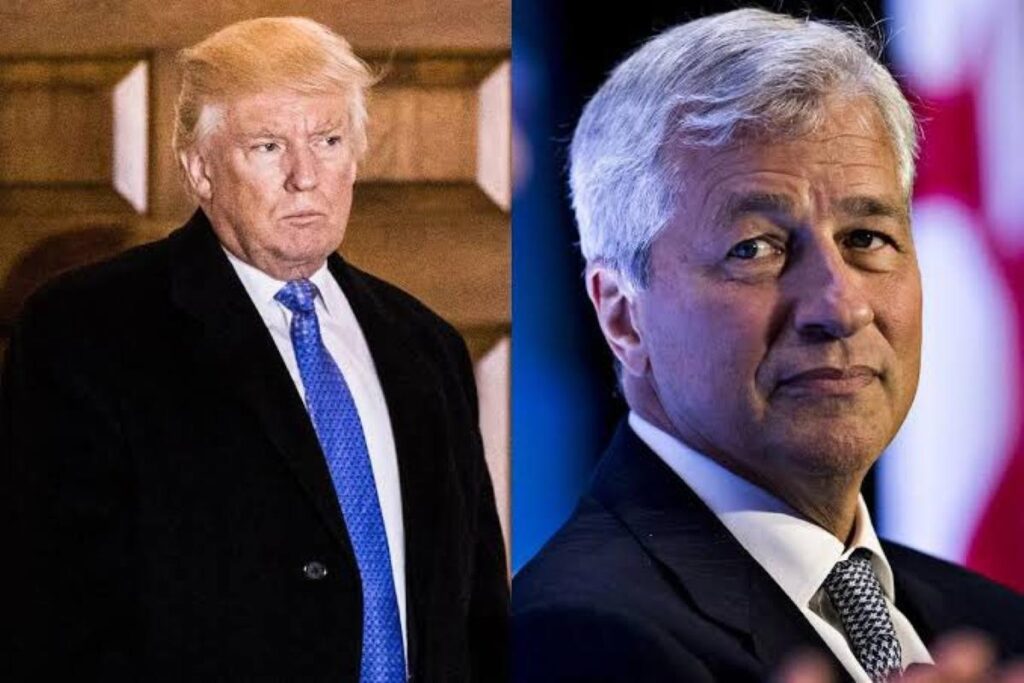Higher-ups in the US banking industry are bracing for major shake-ups in the country’s crypto policy through changes in blockchain regulation and digital currency legislation. Of course, nothing is set in stone, but decentralized finance guidelines are looming in the coming year. However, the managing director at JPMorgan Private Bank, Stefan Gratzer, is pretty optimistic that Donald Trump’s second term will significantly impact the US economy.
From Trump’s second tenure as President, it is evident that there is going to be a notable departure from the crypto policy, deregulation, subtle blacklisting of security token offerings, and financial technology rules of the previous administration.
Trump’s Crypto Policies Could Impact Financial Markets
Gatzer recently pointed out that “One really differentiating thing Trump had in his policy was about crypto.” So, he optimistically encourages analysts to be on the lookout for how the economy will play out in the first two years of President Trump’s second term. Trump is reputed as the US president with the highest leanings towards the stock market.
So, if Trump’s economic team proposes adopting financial technology rules, decentralized finance guidelines, investment regulations, and even security token offerings, Trump will likely give an accent.

While addressing a conference audience in Kuwait, Gratzer also suggested that banking is bound to take a new form under the new administration. He said, “There’s a lot of talk about deregulation that is obviously beneficial for banks like us at the moment, but again, we need to see.” For example, Trump harped on stopping the taxation of digital assets and other taxable income.
ALSO READ: Economists Say That Biden and Trump Are Not Largely To Blame for High Inflation Rate
Potential Economic Boost from Trump’s Pro-Growth Policies
Trump promised to turbocharge the economy through deregulations and tax cuts from the get-go of his election campaign. Interestingly, there’s widespread optimism that the game plan of the incoming President will further boost an already recovering economy.

Analysts predict that the economy will go springy with the proposed tax cuts in the offing. The digital currency legislation will potentially include cuts in taxing digital assets. In other words, lenders are likely to see more traffic as businesses try to capitalize on the reductions for the practicality of business loans.
Gratzer affirms that the gains of the tax cuts are not limited to businesses alone; shareholders also stand to benefit. He explains, “If you buy a share of the company, you’re obviously buying their future earnings minus the tax. If the tax is lower, your share price is higher.”
Impact of Republican-Controlled Congress on Future Policies
The success of any presidency hinges on the singularity of the legislature. Luckily, Trump will be inheriting a predominantly red Senate and House. So, there’s no doubt that President Trump will exploit this political blank check once he assumes office. The only caveat is that this privilege will potentially come to an end in 2026. The 2026 midterm elections may end up messing up the legislative Rubik again.

Thanks to last week’s election result, Republicans now have the upper hand in the Senate and still retain their shot-calling gait in the House. We are likely to see pro-crypto and digital currency legislation materialize in 2025.
JPMorgan Sees Growing Client Interest in AI and Technology
According to JPMorgan Private Bank, multiple technology sectors show great prospects for driving the US economy. The bank declared that it bases such estimations on the global demand for financial technology rules. For example, the US is leading the developmental unraveling of artificial intelligence. Meanwhile, there is a high demand for the capabilities of this novel technology in North Africa and the Middle East. According to Gratzer, demand for AI, cryptocurrency compliance, and similar innovations “reflects our pipeline in technology, especially AI.”

Similarly, Gratzer suggests that energy markets are another critical area that the 47th president may look to dominate. Though slow and steady, there is a progressive transition to green energy around the globe. Similarly, more and more transportation modes are going electric, from cars to drones and even passenger aircraft.
Key Investment Opportunities in the Middle East and North Africa
Also, Gratzer points out while speaking at the MoneyTech conference that there are some sectors that the government cannot afford to sideline in terms of investment. Why? They show very high prospects of driving economic growth.

Gratzer recommends reviving the United States as a medical tourism hub. The healthcare sector has experienced marked changes with the advent of innovative technologies that aid precision medical practice.
Financial regulators could start adopting technology-backed investment regulations to enforce anti-money laundering legislation. Education and luxury products or services are other worthy areas in which to beam the investment searchlight.
While the economy is already picking up and industries are recovering from the inflation bite, Americans are largely on the receiving end. For example, consumer protection laws are helpless in protecting individual Americans and families from the fluctuating consumer price index (CPI).
Pundits are already predicting how Trump’s second term will affect American households and individuals. During his 2024 campaign rallies, Trump promised to increase tariffs on imported goods. According to the incoming President, the goal is not to keep out those products but to encourage local manufacture. With this and many other initiatives, Trump expects unemployment rates to drop even further and cause an increase in Americans’ per capita income.
ALSO READ: JPMorgan’s Chief Economist Urges Fed to Slash Interest Rates by Half a Point This Month
Crypto policy advocates are also very optimistic about Trump bending the taxation of digital assets. Experts also suggest that cryptocurrency compliance may experience an uptick with the proposed relaxation of blockchain regulations through decentralized finance guidelines and the removal of red tape from security token offerings. This will even make the enforcement of anti-money laundering and consumer protection laws more feasible.

